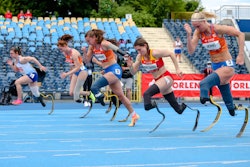JACKSON, Miss. — New regulations enacted by Congress in June have stripped Pell Grant eligibility from nearly 3,000 Mississippi students.
According to a recently completed study of the impact of the new Pell Grant regulations on Mississippi two-year colleges, the changes led to lower enrollments for the fall 2012 semester at 14 of the state’s 15 community colleges.
Without a strong statewide college tuition program, University of Alabama Education Policy Center Director Stephen Katsinas tells The Clarion-Ledger (http://on.thec-l.com/ZKDSLP) the Pell Grant program serves as the de facto student aid program, making Pell a key economic development driver for the state’s future workforce.
In addition to the 2,960 students who lost eligibility for Pell Grants last fall, Kastinas said another 7,154 will lose eligibility in the next several semesters because of new requirements.
Losing the opportunity to attend a community college is especially troubling in more rural states like Mississippi, Katsinas said Tuesday, since the job market is relying less and less on agriculturally based jobs and more on skilled workers in today’s Information Age.
“Learning skills is going to become more important,” he said. “That’s what rural community colleges do.”
The change stripping most students of eligibility is a reduction in the number of semesters for which students are eligible for Pell Grants from 12 to eight.
Katsinas said this change will hurt community college students, especially, since 65 percent of them also have jobs and often attend college part time over an extended time period.
The new guidelines now fully fund Pell Grants only for students whose families have an income of $23,000, which is down from a previous level of $32,000.
Students will not receive full funding unless they come from a family that is skirting the poverty line, which is $22,500, Katsinas said.





















